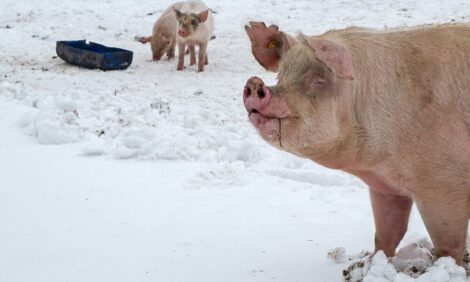



RP Misses Chance to Export Pork to Singapore
PHILIPPINES - The Philippines can no longer export pork products to Singapore for failing to meet requirements, Emilio V. Escobillo, Jr., chair of the South Cotabato Swine Producers Association (SOCOSPA), said.MindaNews reports that Mr Escobillo confirmed that no testing for Ebola Reston virus was conducted in South Cotabato province in mid-February, as earlier promised by the government.
“SOCOSPA is no longer optimistic that we can realise the country’s first foreign pork meat foray under this administration,” he said.
Mr Escobillo said the Agri-Food Veterinary Authority of Singapore gave the Philippine government until end of January to submit a bio-security measure for Mindanao, global position system of hog farms in Mindanao and the different chokepoints in Mindanao but this was not complied.
Earlier, the local swine association proposed the declaration of Mindanao as a separate biosecurity region to push forward the first pork shipment of the country, which was aborted due to the detection of the Ebola Reston virus.
The virus, however, was found in hog farms in Luzon, leading to the suspension of pork exports from Mindanao to Singapore more than a year ago.
It could have been the first time that the Philippines, a net importer, would have exported pork products.
The country imported 108.739 million kilograms of pork and pork preparations worth $74.449 million, including freight, in the 11months up to November last year, data from the Bureau of Agricultural Statistics show.
Late last January, Davino P. Catbagan, director of the Bureau of Animal Industry (BAI), announced that the test kits for Ebola Reston virus were expected to arrive mid-February.
He said South Cotabato will be the priority of the 5,000 test kits they ordered.
But Mr Escobillo said no Ebola Reston virus testing has been conducted so far among the hog farms in the city and South Cotabato province.
Mr Escobillo blamed the BAI for failing to meet the deadline set by Singapore’s AVA to submit the biosecurity measure for the swine industry in Mindanao.
On the Ebola Reston testing kit, Mr Escobillo referred to it as “Eliza Testing,” which he claimed offers non-conclusive results.
It’s just a screening test under World Trade Organization rules that can tell results of “50 per cent right or 50 per cent wrong,” he explained.
Mr Catbagan could not be reached for comment.
Mr Escobillo said there may be some a group preventing the Philippines from competing with major meat-producing countries such as Australia, New Zealand, Canada and the United States.
Early last year, officials from the World Health Organisation, World Organisation for Animal Health (OIE), and Food and Agriculture Organisation of the United Nations tested six people and hogs from the Pandi farm in Bulacan. They were found positive of the virus. This incident prompted the government to cull some 6,500 hogs in the infected farm. No Ebola Reston case has been detected since.
Mr Escobillo claimed that Ebola Reston virus “could not be present” in Mindanao, as it the island had earlier been declared by the Office International des Epizooties or the OIE as free from the foot-and-mouth disease.
Mindanao was chosen by the government to pioneer pork exports since it is certified free from foot-and-mouth disease since 2001.






